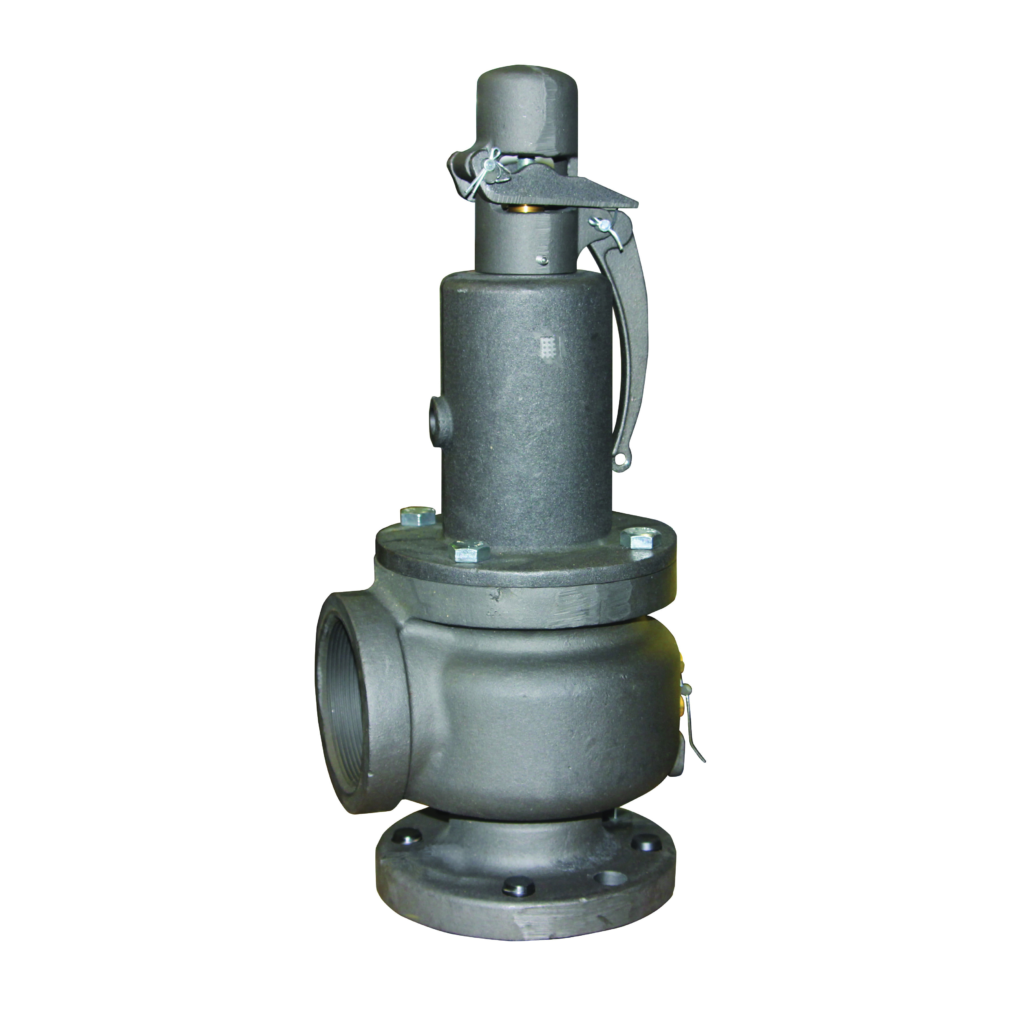When it comes to protecting your equipment from unexpected pressure spikes, there’s no room for compromise. Relief valves are designed to safeguard your operations, ensuring your systems run smoothly without the risk of costly damage or downtime.
What Is Relief Valve?
A relief valve, also known as a pressure relief valve, is an automatic pressure-releasing device designed to protect closed-system equipment or pipelines. It activates when the system pressure exceeds a preset limit, releasing pressure to prevent equipment damage or accidents. Relief valves are critical components for ensuring the safety and reliability of various industrial systems. Below is a detailed introduction to relief valves, their working principle, applications, and importance.
How Does It Work?
The working principle of a pressure relief valve relies on the balance of forces. When the pressure acting on the valve disc exceeds the threshold set by a spring or another mechanical device, the valve disc opens, allowing gas or liquid to be released from the pressure vessel, reducing the internal pressure. There are two main types of relief valve structures: spring-loaded and lever-type, with spring-loaded relief valves being the most common in industrial applications.
These high-pressure relief valves are typically used in situations where the system is exposed to high levels of pressure, such as in boilers, compressors, and various industrial systems. When the pressure exceeds the preset threshold, the relief valve automatically opens, providing a safety mechanism to prevent equipment damage.
Key Applications of Relief Valve
They are essential across a variety of industrial sectors. Some of the most common applications include:
- Petrochemical Industry: In petrochemical processes, relief valves help control the pressure in high-temperature and high-pressure equipment, preventing equipment failure and accidents. These industrial pressure valves are crucial for maintaining safety standards in harsh environments where pressure can fluctuate rapidly.
- Power Industry: Especially in thermal power plants, pressure relief valves for boilers control the pressure in steam boilers and other critical systems. By maintaining proper pressure levels, these valves help ensure the safety and efficiency of power generation operations. Whether for large-scale boilers or steam generators, these safety devices are vital to prevent accidents caused by overpressure.
- Shipbuilding Industry: In the shipbuilding industry, safety valves for industrial use are used in steam, water, fuel, and lubrication systems required for vessel operations, as well as in systems that transport liquid or gaseous cargo. These valves are critical for maintaining safe pressure levels within vessels, ensuring smooth and safe operations.
- Metallurgical Industry: Automatic pressure relief valves in metallurgy control the flow, pressure, and temperature of fluids, ensuring smooth operations. They protect equipment from excessive pressure and help regulate the environment for effective material processing.
- Nuclear Power Industry: As critical safety components in nuclear power plants, relief valves are used to regulate reactor pressure, preventing dangerous overpressure situations that could lead to catastrophic events. High-pressure relief valves are key to maintaining safety in high-risk environments like reactors.
- Compressor Systems: In compressor systems, pressure relief valves are used to prevent overpressure damage. These valves are essential for protecting equipment from unsafe pressure levels and ensuring efficient operation of systems that rely on compressed air or gas.
- Boilers and Pressure Vessels: Pressure relief valves for boilers and pressure vessels are crucial for maintaining safe pressure levels. These valves ensure that pressure does not exceed safe limits, preventing potential explosions and maintaining system safety in critical environments.
Why Relief Valves Are Critical for Preventing Equipment Damage and Accidents
Relief valves are indispensable in industrial safety. Not only do they protect the equipment from damage due to excessive pressure, but they also play a vital role in preventing accidents that could endanger personnel or disrupt operations. The use of automatic pressure relief valves in various industries has significantly enhanced safety by ensuring that pressure levels stay within safe operating limits.
In modern industrial systems, pressure relief valves are indispensable, contributing to both system efficiency and safety. Their ability to regulate pressure in real time makes them a crucial element in preventing both minor malfunctions and major catastrophic events.
Conclusion
Relief valves are crucial safety devices used in industries ranging from petrochemicals to power generation, shipbuilding, and metallurgy. Their ability to manage pressure effectively ensures that industrial operations continue smoothly without unexpected failures. As technology advances, relief valves continue to improve in terms of performance and intelligence, meeting higher safety and efficiency standards.
For businesses looking to ensure safety and enhance system performance, BESQO Marine offers high-quality relief valves designed for various industrial applications.
